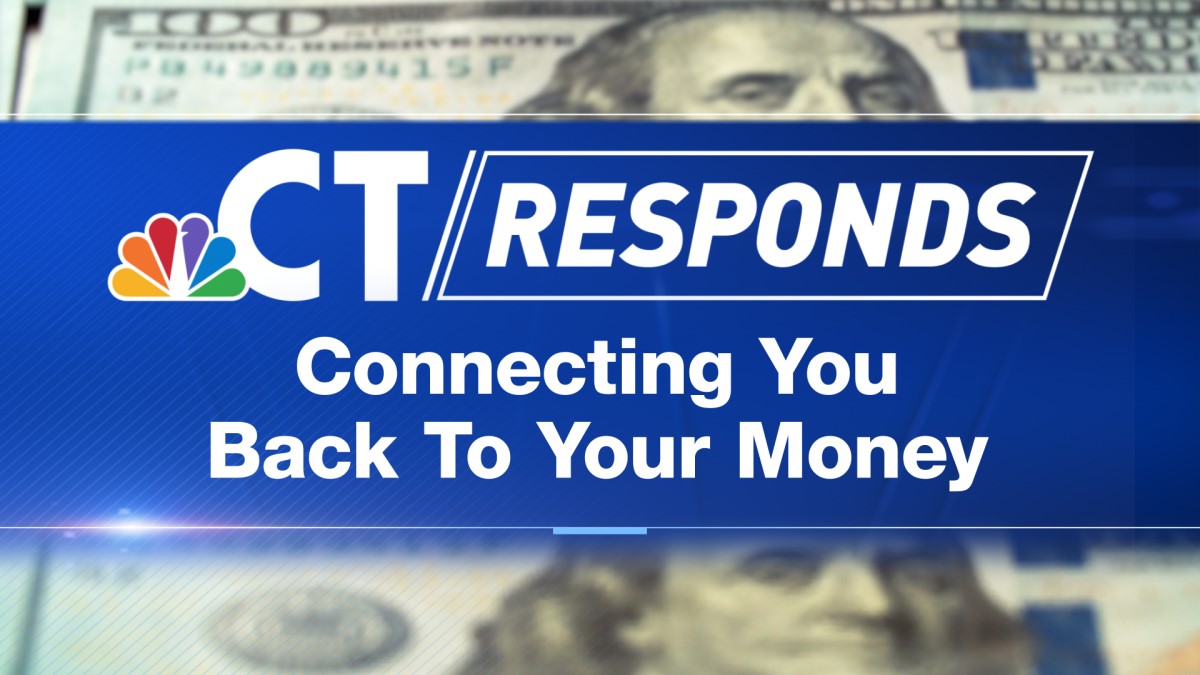From pandemic precautions keeping folks in their homes, feeling alone during the holidays, or whatever the case, people can feel isolated. That’s when romance scammers strike.
Earlier this year, a Naugatuck woman shared her story with NBC CT Responds consumer reporter Caitlin Burchill.
“One day this really handsome guy sent me a message -- ‘Hello, pretty,’” said the woman, who asked us to hide her face and change her voice during the interview.
She said she lost about $25,000 after falling for the very convincing, bad actor online.
Get Connecticut local news, weather forecasts and entertainment stories to your inbox. Sign up for NBC Connecticut newsletters.
This was someone she spoke to daily for more than a year.
“Morning, noon, and night we were in constant communication,” she explained.
After doing some digging, the NBC CT Responds team discovered her online boyfriend was on the take across the country.
NBC CT Responds
Following paperwork the Naugatuck woman shared with us, we connected with a woman in Pennsylvania who lost at least $10,000.
Another woman in Kansas told us she’s out $20,000.
And a woman in Hawaii lost thousands of dollars too. She said she even received jewelry, flowers, and other gifts from the scammer during the process.
“It's an investment on their part to what they're going to be seeing in return from the person that they're scamming. And they will take a month, or they will take eight months, or even a year we've seen before they asked for money or received money from the person,” said Kim Casci-Palangio, the director of a peer support program for romance scam survivors with the Cybercrime Support Network.
When people think of romance scams, they picture a person of a certain age group, but Casci-Palangio said it doesn’t matter your age.
“It's much bigger than anyone understands. And it's much more common than people understand,” she said.
The Cybercrime Support Network is seeing more and more people being targeted.
“I think a lot of times people think, ‘Oh, that wouldn't happen to me,’ you know, ‘You just weren't paying attention.’ But this is emotional manipulation, and it can happen to anyone,” said Casci-Palangio.
She said many times it’s what you post on your social media that makes it easier for a scammer to learn more about you to get a conversation rolling and slowly build your trust.
“Maybe you've come into money, because you've posted on your social media that your mom or dad passed away. And so, they look for those kinds of ins and search for information so that they can have commonalities with you to start the conversation to get to know you,” she said.
So, watch what you post.
She said you can also protect yourself by taking these steps:
- Enhance your privacy settings on social media
- Be cautious with friend requests. Don’t just accept someone because they’re friends with a friend. She said that’s all part of a scammers scheme.
- Don’t just trust a match on a dating site, criminals can fake their profiles
- Avoid taking popular online quizzes.
“What was your pet's name growing up? What was your first car, all of these things can be used to not only find chatter to have with you, right? Conversation to have with you, and to find similarities,” Casci-Palangio said.
She said another red flag is if someone wants to immediately move the conversation from a gaming or dating site to another communication platform, “That's a telltale sign that they want to get you off the site before they get snagged for being a scammer.”
AARP Fraud Watch Network wants people to be cognizant when plans to meet in person fall through and then after regular contact that person eventually has an urgent plea for financial help, perhaps a medical emergency.
Don’t send money by wire transfer, buy gift cards, or share the information off the back of the card.
In the Naugatuck woman’s case, beware of someone asking you to buy them digital currency too.
AARP says browser image search a photo of the person, if you have one, to see if they show up as someone other than who you think they might be.
If you suspect the person has bad intentions, notify the dating platform and report it to the FBI’s Internet Crime Complaint Center and to the FTC.
If you’ve lost money, contact police too, but, “It's very difficult for law enforcement to track these types of crimes. They're usually located overseas in countries that are not cooperative. And even when they can follow it and track it all the way back and have luck with that. The money is usually long gone,” said Casci-Palangio.
If you think a loved one may be impacted, Casci-Palangio says approach the topic with a kindness and understanding because words are powerful.
Remember people used to fall in love using letters? She says this is the same in the 21st century, just online.
Casci-Palangio explains, “Our immediate instinct is to go, ‘No, it's a scam, stop, you know, stop communication immediately.’ But the most important thing is to meet them where they are, and say, ‘Okay, you know, let's check this out together. Let's look at this. Let's, let's look for the facts. Let's look for the red flags.’ Try not to get frustrated and understand that they are in love in the same way that you would be in love with someone in person.”
Because when you’re under the spell of love, it’s easy to make poor choices.
‘We all know when you're in that giddy phase, you can make some irrational decisions. You know, how many times have we all gone, ‘Ahh what was I thinking?,’” said Casci-Palangio.
In our interview with the Naugatuck woman, she told us, “I’m a smart woman, I’m a professional. I’ve had really great jobs. Educated. It doesn’t matter.”
If you’ve been impacted by a romance or any other scam, the Cybercrime Support Network wants to stress you’re not alone and that these people are career criminals who are very good at what they do.
You can visit its website for peer support groups, how to report the cybercrime you experienced, and other resources too.



